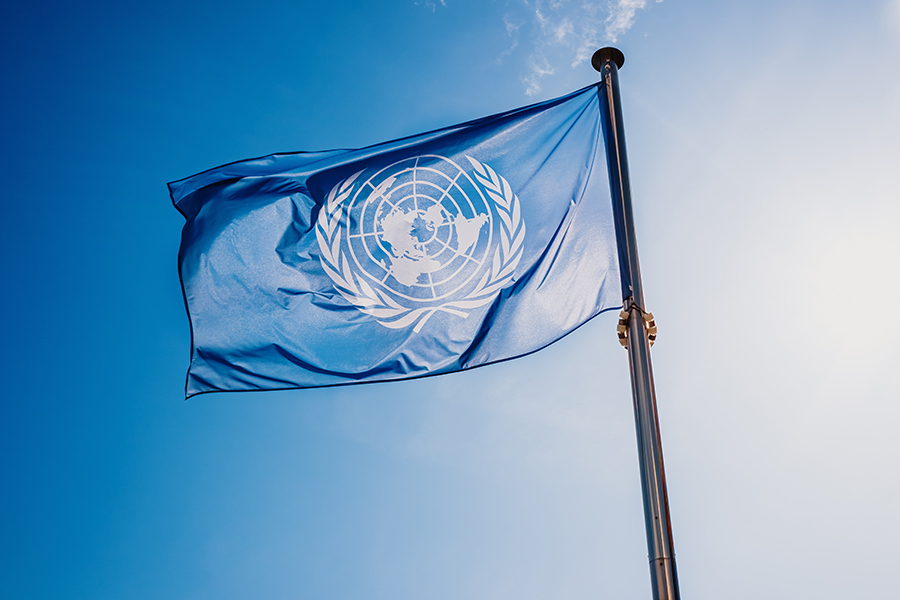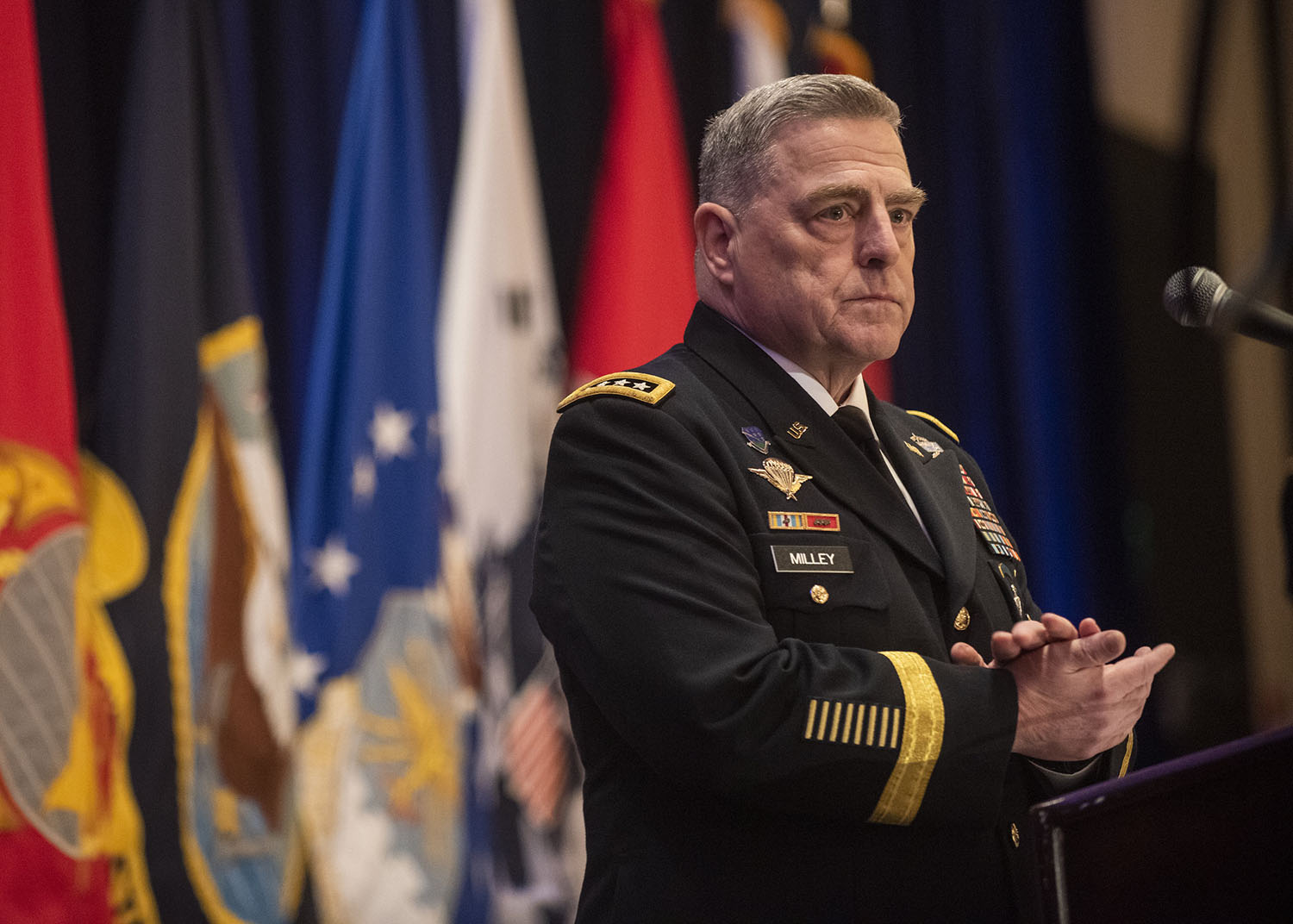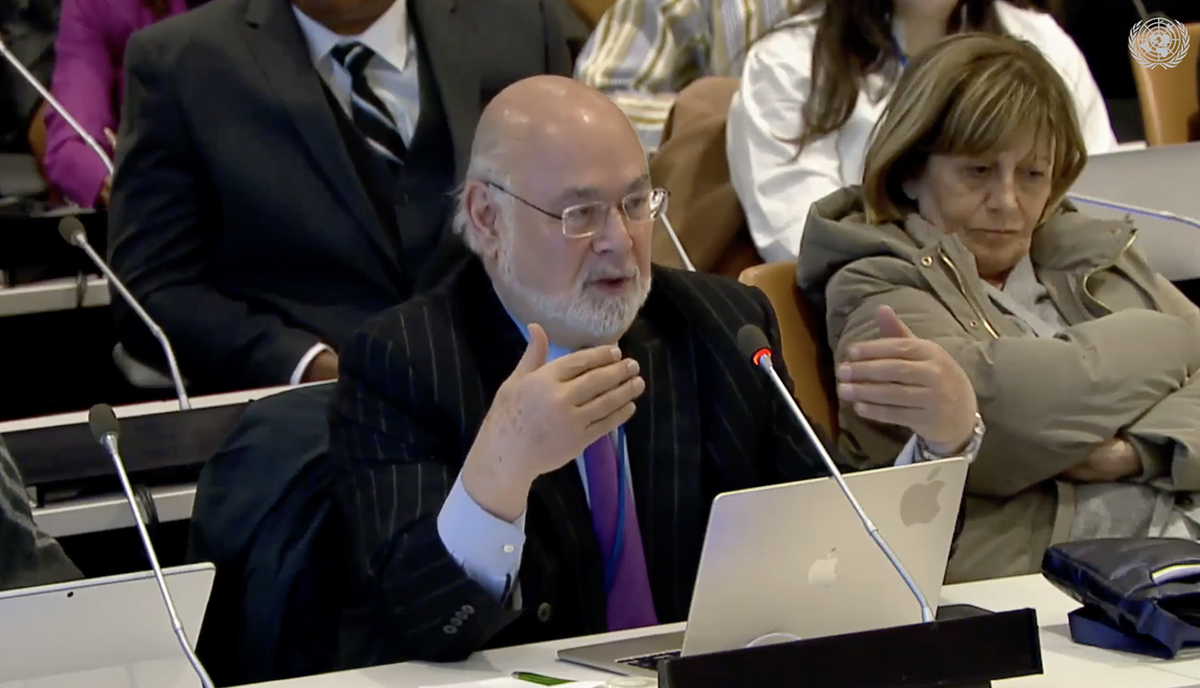Published in the Cadmus Journal Volume 4, Issue 6, June 2022
Today, numerous threats challenge every person on our fragile planet.
The ancient admonition found in the Upanishads that the world is one family might be understood as a necessary and very practical perspective to address successfully these global threats. Although there is clearly a value in levels of political organization and expression from cities, to states, to nations there is a pressing need for global cooperation to meet these threats. The practical pursuit of global human security is a valuable principle to gather political will to advance multilateral cooperation.
Likewise, to bring sustainable human security to any nation multilateral cooperation is necessary. There is no other way to effectively address pandemics, stabilization of the climate, the health of the oceans, rainforests, cybersecurity, nuclear and other weapons of mass destruction, even stabilization of financial markets, and poverty. These are not the only issues of today requiring a multilateral approach. Moreover, we can see on the near horizon artificial intelligence, quantum computing, and intrusive surveillance putting fundamental freedoms everywhere at risk. Efforts at multiple levels of society are needed to push rapidly for change from adversity to cooperation.
In his Nobel Peace Prize acceptance speech of 10 December 1964 Dr. Martin Luther King said: “I refuse to accept the cynical notion that nation after nation must spiral down a militaristic stairway into the hell of nuclear annihilation… I have the audacity to believe that people everywhere can have three meals a day for their bodies, education, and culture for their minds, and dignity, equality, and freedom for their spirits.” Even today, his profound words resonate and call us to pursue policies that provide human security.
But whose words are guiding the policies of the most powerful nations in their aspiration to fulfill the first duty of every state and make their citizens safe and secure? Perhaps the 4th century admonition of the Roman general Vegetius Renatus, in his landmark treatise Epitoma Rei Militaris: “If you want peace, prepare for war.” This ancient text guides budgets, strategies, and distorts geopolitics into institutionalized adversity, a view that has led us to the profligacy of military expenditures that hover just short of $2 trillion dollars yearly. This is nearly double global military expenditures of 2000.
These expenditures, based on cycles of fear and adversity in derogation of trust and cooperation, are reinforced by values and ideas that place national identity before our common humanity. Like other obstacles to multilateral cooperation such as religious fanaticism or terrorism, there remains the problem of nuclear weapons threats which rely on an intentional existential threat to obtain security.
There are certainly appropriate defensive roles for militaries and proportionate budgets would evidence them, but today’s expenditures demonstrate a profound distortion of values. As President Joe Biden once said, “Don’t tell me what you value. Show me your budget, and I’ll tell you what you value.”
Can the dynamic of national militarism provide security in the face of the actual threats of today? Will a primarily military approach bring lasting security to problem areas such as Syria, Israel/Palestine, India/Pakistan, Taiwan/China, and especially Ukraine/Russia,? Of course not. Worse, in a nuclear age, the danger of war expanding into the unthinkable remains ever over our heads.
Is there a way to fulfill the United Nations aspiration to ensure freedom from the “scourge of war” based on cooperation amongst nations, commonly expressed as multilateralism? Indeed, there is. The potential for true human security has been explicitly expressed in UN General Assembly Resolutions and substantive reports . Though the concept is supported by the United Nations Secretariat, and there is even a functioning United Nations Human Security Trust to fund projects fulfilling its promise, the concept has not yet reached its potential to catalyze progress. The reinforcing very practical approach of common security, which identifies the need for human security as its first principle, has similarly not been adequately utilized.
Common security refers to building security between nations through international law, diplomacy and conflict resolution. It is based on the notion that national security cannot be sustained by threatening or reducing the security of other nations, but only by ensuring that the security of all nations is advanced. It relates specifically to multilateral traditional security concerns and for that reason human security is highlighted in the outstanding Common Security: For Our Shared Future 2022 Report, Olaf Palme Centre as its necessary framework.
Human Security refers to meeting the security needs of people as the core obligation of states. Common security refers to bringing more effective security between and amongst states. They are mutually reinforcing concepts.
As noted in General Assembly resolution 66/290, “human security is an approach to assist Member States in identifying and addressing widespread and cross-cutting challenges to the survival, livelihood and dignity of their people.” The resolution calls for “people-centred, comprehensive, context-specific and prevention-oriented responses that strengthen the protection and empowerment of all people.”
It is a powerful idea that can integrate the Sustainable Development Goals, which presently are burdened by the inefficiency of being in silos. The development of the concept of human security lays a firm and coherent foundation for needed multilateral cooperation amongst the world’s nations.
Human security is an idea that parallels the power of the ideas behind the creation of the modern state system, based on sovereignty rights expressed in the Peace of Westphalia (1648), from which arose treaties that changed the political architecture of the world. The new system ended the massive slaughters of European Catholics and Protestants fighting over definitions of Christianity. The change of political architecture formed the basis of our modern sovereign state system. That system must now function far more cooperatively to fulfill the vision of the United Nations multilateral system.
The UN system was created in response to the carnage of the 20th century World Wars and is focused on preventing the scourge of war.
Today our political architecture must quickly adjust to meeting 21st Century challenges for which mere national self-interest is insufficient. There are numerous existential threats that require multilateral cooperation for any state to be safe. In other words, human security goals and multilateral cooperation do not diminish sovereignty but are the very tools needed for sovereign states to fulfill their duties to keep their citizens safe and secure.
Human security focuses on how people actually live and how to meet their achievable real needs. These include ensuring a clean sustainable environment, useful education, secure jobs, fulfilling culture, stable communities, good health, nourishing food, and the flourishing that comes from freedom of worship, conscience, human rights and the rule of law. These needs require safety in neighborhoods and a culture of peace. Meeting these needs enhances the dignity of each individual. In other words, human security refocuses the pursuit of security from military nationalism and increased threats, violence, and fear to cooperation in meeting present actual real human needs.
Today so many of the needs of people and the needs of their governing institutions, states and businesses require global cooperation because the threats before us cannot be adequately addressed at a national level.
No matter how much is spent on weaponry nor how much an economy of a nation grows, if its people are unhealthy, insecure in their livelihoods, persons, or property, security and wellbeing will evade them.
Today, as never before in human history the regenerative processes of the natural world are at severe risk. The capacity of humanity’s impact on the natural world is increasing and accelerating. Nations are spending obscene amounts of intellectual, social and economic capital on expanding arsenals, building new more destructive weapons of mass destruction, further institutionalizing adversity based on an inadequate approach to achieving security. We need this new dimension. We cannot drive 21st century vehicles on highways built in the horse and buggy age.
Responding to and preventing pandemics, protecting the climate, rainforests, the health of the oceans, water, and topsoil, stopping the destruction of species and impairing the web of life we call biodiversity, along with eliminating the existential threat posed by nuclear weapons and achieving an equitable secure global financial system that does not destroy the regenerative processes of nature cannot be met by national security approaches. These challenges require an approach that centers on how people everywhere actually live. They require nations to cooperate and minimize adversity.
While brandishing nuclear weapons at each other, over 70% of the world’s malnourished children are in Pakistan and India. In each of these countries, one third of the children are burdened by this tragedy. For these children what does the security of the state mean?
What is happening to the very breath of life which depends on the health of the forests and the phytoplankton of the oceans to provide oxygen? Our financial system privileges enterprises that ignore their environmental and thus climate impact, as they impose unsustainable stress on forests and the oceans. There is no regime in place to adequately stop pollution of the oceans or the destruction of forests. Our very definition of security cannot ignore these facts any longer.
The myths of infinite growth in a finite planet and the myth that security can be found by increased militarism must be met with the realism of science in understanding our relationship with the natural world and an ever increasing sense of gratitude for its bounty.
Change is needed quickly. Ideas that can generate that change are critically important. Human security is such an idea.
Jonathan Granoff, President Global Security Institute, Representative to the United Nations of the World Summits of Nobel Peace Laureates, and Fellow of the World Academy of Arts and Science
Jonathan Granoff is the President of the Global Security Institute, a representative to United Nations of the World Summits of Nobel Peace Laureates, a former Adjunct Professor of International Law at Widener University School of Law, and Senior Advisor to the Committee on National Security American Bar Association International Law Section.








